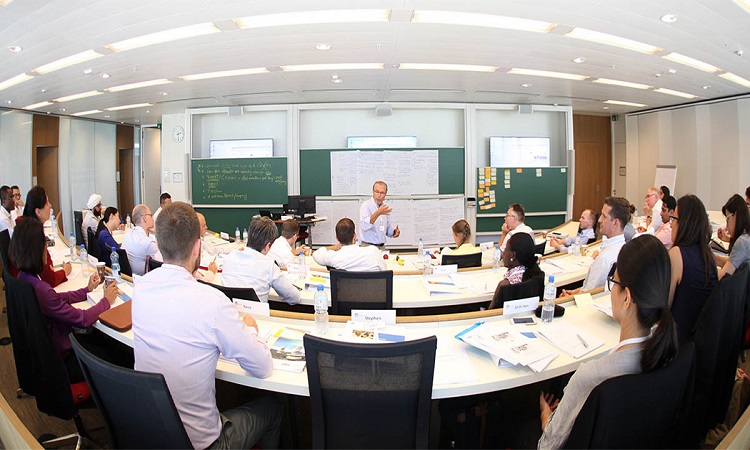Business schools must include local case studies in order to provide a truly effective learning experience for the students
“I was in the final interview facing the CEO of a renowned MFS for a territory officer position. He asked me, ‘What do you mean by sales, and can you explain to me the general distribution model adopted by the MFS companies in Bangladesh?’ Being a business graduate with a concentration in marketing, I was confident with answering the first part of the question but replied to the latter one vaguely. Although I secured the job, I was in dismay realizing my lack of practical knowledge regarding the business ecosystem of Bangladesh in spite of graduating from one of the best business schools” — one of the many experiences shared by my friends about their job interviews.
Graduates in Bangladesh are often not adequately prepared for the industry. This issue highlights the disconnection between academia and the local business landscape.
According to Global Knowledge Partnership on Migration and Development (KNOMAD/World Bank, 2023), the total remittance outflow in 2022 was $137 million, which is around TK14 billion. Although the remittance outflow does not match the $21,504m inflow, it is still quite intimidating when 2.63 million people remain currently unemployed, per the “Labor Force Survey 2022” released by the Bangladesh Bureau of Statistics (BBS).
Currently, more than a hundred thousand foreign nationals are working in Bangladesh, especially in the RMG and textile industries, and the number is frequent when we look at the top management of local and multinational corporations.
Why is that? Do the tertiary institutions need to provide the skills necessary to accommodate our students in the industry? Why aren’t our graduates able to replace the foreign C-suite executives? For many reasons, industry experts have been echoing the existing bridge between academia and the industry.
Business schools have a significant role in offsetting this gap. Business schools should be the engine to prepare industry-ready graduates and transform them into industry leaders who will navigate the growing economy of Bangladesh and lead to sustainable development.
One major issue is the connectivity of our classrooms with the local businesses. One will find the example of McDonald’s Aloo Tikki Burger in India or Amazon’s incredible transformation in Phillip Kotler’s books, but will never see the reasons behind the tough luck of international burger giant Burger King competing with local burger chains like Chillox, Madchef, or Takeout. Who had a phenomenal rise? A finance student knows the Enron Scam took place in the USA, but is unaware of how an unfamiliar organization like Hallmark made one of the biggest bank scams in Bangladesh.
Case studies hold utmost significance in business education as it replicates real-life business scenarios within a classroom setting, providing valuable practical knowledge, real-world challenges, and strategic methodologies that refine students’ problem-solving abilities while bolstering their learning capacity. As most business schools in Bangladesh follow North American teaching materials, it comes up with case studies of renowned international brands.
While these cases have undeniable importance, they lead to a limited scope for fresh insights and localized perspectives that hampers our comprehension of the Bangladeshi job market, leading to detrimental consequences for the overall industry. The absence of local business cases in the curriculum is a significant factor contributing to the widening gap in the preparedness of its graduates compared to other developed and developing nations.
Without venturing too far into Harvard Business School, let us consider renowned Asian business schools, such as the National University of Singapore Business School or the HKUST Business School in Hong Kong, as they develop case studies based on the local market and teach those to their students.
A significant reason behind the dearth of locally prepared business cases is the lack of training and access to limited resources, especially for the faculty members of the business schools. The high cost of subscriptions as well as the unfamiliarity, unlike the journal articles, weighs in for the need of local business cases.
To address this concern, BRAC Business School has come forward. The initiative taken by BRAC Business School in partnership with Emerald Publishing to organize the 1st International Case Conference on Business and Management (ICCBM) 2023 is a promising step in the right direction.
ICCBM aims to develop cases explicitly focused on local businesses, providing a platform for experiential learning, and engaging academics, students, industry professionals, and social leaders.
“Enterprise, Practice, and Leadership in Emerging Economies” is the conference’s theme. It will focus on contemporary high-impact issues like AI, 4IR, Fin-Tech, microfinance, social development, the new normal (post Covid), sustainability, climate change, etc.
The conference will take place on July 27, 2023 and will be dedicated to Sir Fazle Hasan Abed, a development and social business pioneer. Such a case conference is pristine, and I’m hopeful it will open a new dimension to the pedagogical inclusion of case studies in classrooms.
Faiza Tahiya, Graduate Teaching Assistant, BRAC Business School. Shadman Sakib Rummat, Graduate Teaching Assistant, BRAC Business School.
Source: Dhaka Tribune.

